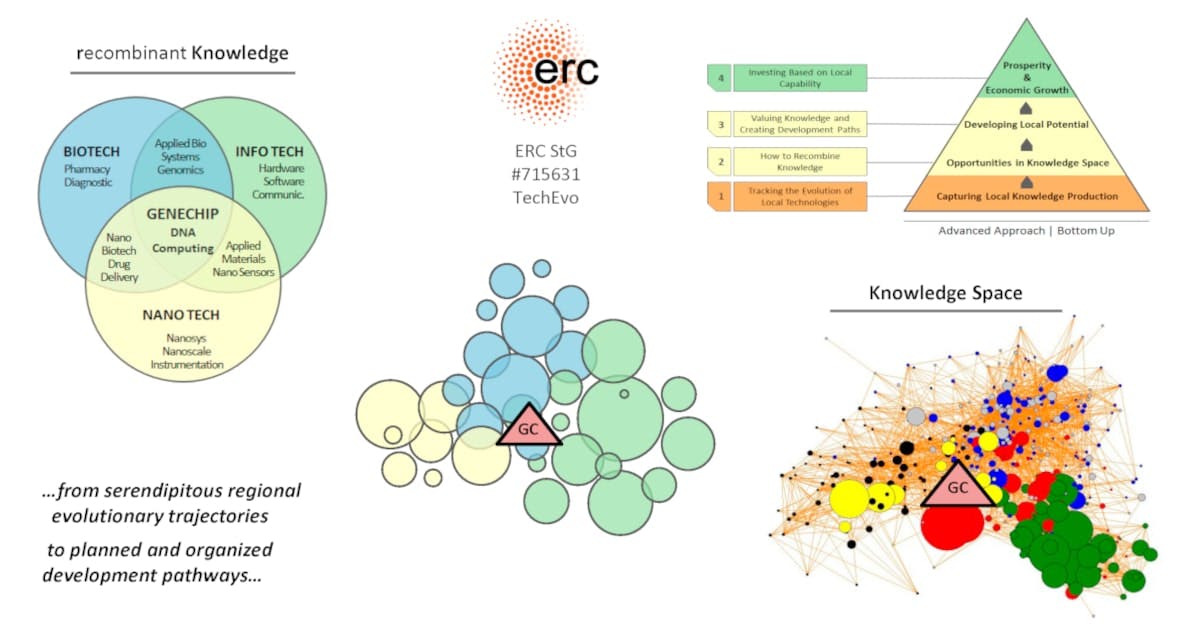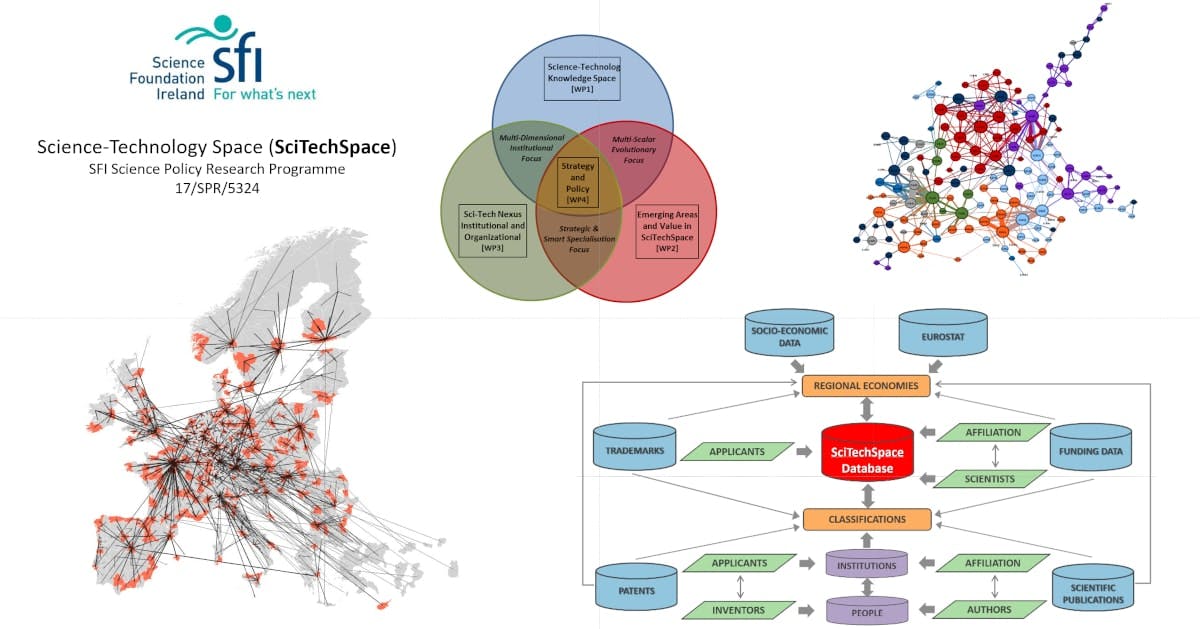Research

ERC TechEvo Concept

The creation and accumulation of knowledge are processes at the heart of technological change, economic growth and prosperity. Attention has been directed at aggregate measures of knowledge production in regional and national contexts, but little consideration has been given to the properties, heterogenous nature, and multi-dimensional aspects of knowledge produced in specific places. This leaves open numerous key questions including: How does the nature of knowledge that is produced vary over space, what conditions the scope of scientific and technological advances generated in different locations, and how do these knowledge sets impact the performance of local firms and industries? To date, the way in which specific regional knowledge capabilities influence the evolution of local science and technology trajectories and thus shape geographies of economic prosperity have not yet been considered systematically.
The objective of TechEvo is to fill this significant research gap by investigating the long-term evolution of knowledge creation in European regions.
Sci Tech Space Concept

The creation and accumulation of scientific and technical knowledge are processes at the heart of technological change and economic growth. A significant literature has contributed to aggregate measures of knowledge production, but the underlying processes that explain how advanced knowledge is generated in the first place, and subsequently translated into novel products and processes of economic value, remains unexplored. The “Science-Technology Space” project will undertake an evolutionary analysis that will establish the link between scientific knowledge production and technological progress. Of particular interest are knowledge recombination activities at the intersection of science and technology domains. The overall objective of the project is to develop 1) an analysis tool capable of identifying gaps and opportunities for technology evolution and scientific advancement at the micro- and meso-scale, relevant for public and private entities, and 2) a science and technology policy evaluation appraisal tool capable of assessing impact and forecasting.